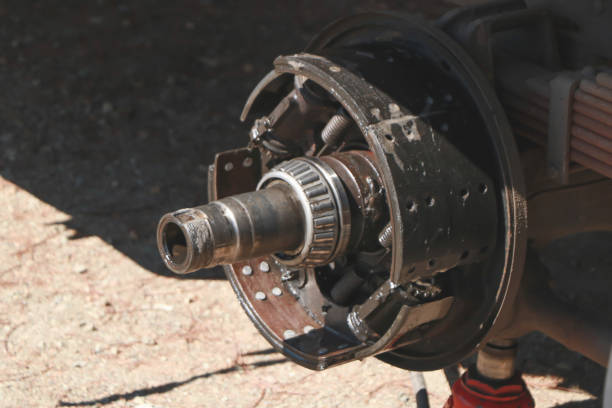Daihatsu’s engineering philosophy centers on creating compact, efficient commercial vehicles that maximize utility while minimizing operational costs. This approach has made Daihatsu trucks particularly popular in urban delivery applications and small business operations across Asia-Pacific markets. The company’s commitment to lightweight construction, fuel efficiency, and reliable performance stems directly from Japanese manufacturing principles that emphasize continuous improvement and precision engineering. When maintaining these vehicles, the choice of replacement parts significantly impacts long-term performance, operational costs, and vehicle reliability. Japanese truck parts Daihatsu specifications are designed to work in perfect harmony with the vehicle’s integrated systems, ensuring optimal performance and extending service life beyond what generic alternatives can typically achieve.
Precision Engineering and Tight Tolerances
Japanese manufacturing standards for Daihatsu truck components involve tolerances measured in microns rather than millimeters. This precision extends to every aspect of component design, from engine internals to electrical connectors. Daihatsu’s quality control processes require parts to meet specifications that often exceed international standards, with particular attention to dimensional accuracy, surface finish quality, and material consistency.
The company’s production facilities utilize advanced measurement technologies including coordinate measuring machines and laser interferometry to verify component specifications. This level of precision ensures that Japanese-manufactured parts maintain proper clearances, reduce friction losses, and operate within designed parameters throughout their service life. Non-Japanese alternatives often lack this level of manufacturing precision, leading to premature wear, increased noise levels, and reduced efficiency.
Engine components exemplify this precision advantage. Piston rings manufactured to Daihatsu specifications maintain compression ratios within 0.1% of design values, while aftermarket alternatives may vary by several percentage points. This difference directly impacts fuel consumption, emission levels, and engine longevity. Similarly, fuel injection components require precise flow rates and spray patterns that only original specification parts can reliably deliver.
Material Science and Metallurgy Advantages
Daihatsu’s material selection processes involve extensive research into alloy compositions, heat treatment procedures, and surface coating technologies. Japanese steel suppliers working with Daihatsu utilize proprietary alloy formulations developed specifically for automotive applications. These materials undergo specialized heat treatment cycles that optimize grain structure for specific loading conditions encountered in truck operations.
Transmission components demonstrate these material advantages clearly. Japanese gear sets utilize case-hardened steel with precisely controlled carbon gradients that provide hard wearing surfaces while maintaining tough cores. The heat treatment processes create optimal residual stress patterns that resist fatigue crack initiation and propagation. Generic replacement parts typically use standard tool steels with conventional heat treatment, resulting in significantly shorter service lives under equivalent operating conditions.
Corrosion resistance represents another material science advantage. Daihatsu’s coating specifications include multi-layer systems combining zinc phosphate conversion coatings with organic topcoats designed for specific environmental conditions. These coatings undergo accelerated corrosion testing equivalent to decades of real-world exposure, ensuring long-term protection in harsh operating environments.
Integration with Vehicle Systems
Modern Daihatsu trucks incorporate sophisticated electronic systems that monitor and control various vehicle functions. These systems rely on precise sensor inputs and actuator responses to maintain optimal performance. Japanese truck parts are designed with specific electrical characteristics, including resistance values, frequency responses, and signal timing parameters that match the vehicle’s control algorithms.
Electronic control units in Daihatsu trucks utilize proprietary communication protocols and diagnostic procedures that require compatible components for proper operation. Sensors and actuators must provide signals within narrow voltage and current ranges to prevent fault codes and maintain system functionality. Non-specification parts may operate initially but can cause intermittent problems or complete system failures as operating conditions change.
The integration extends to mechanical systems as well. Daihatsu’s engineering approach considers each component as part of a larger system, with mounting points, flow characteristics, and dynamic responses optimized for specific vehicle applications. This systems-level design means that individual components must meet exact specifications to maintain overall vehicle performance and reliability.

